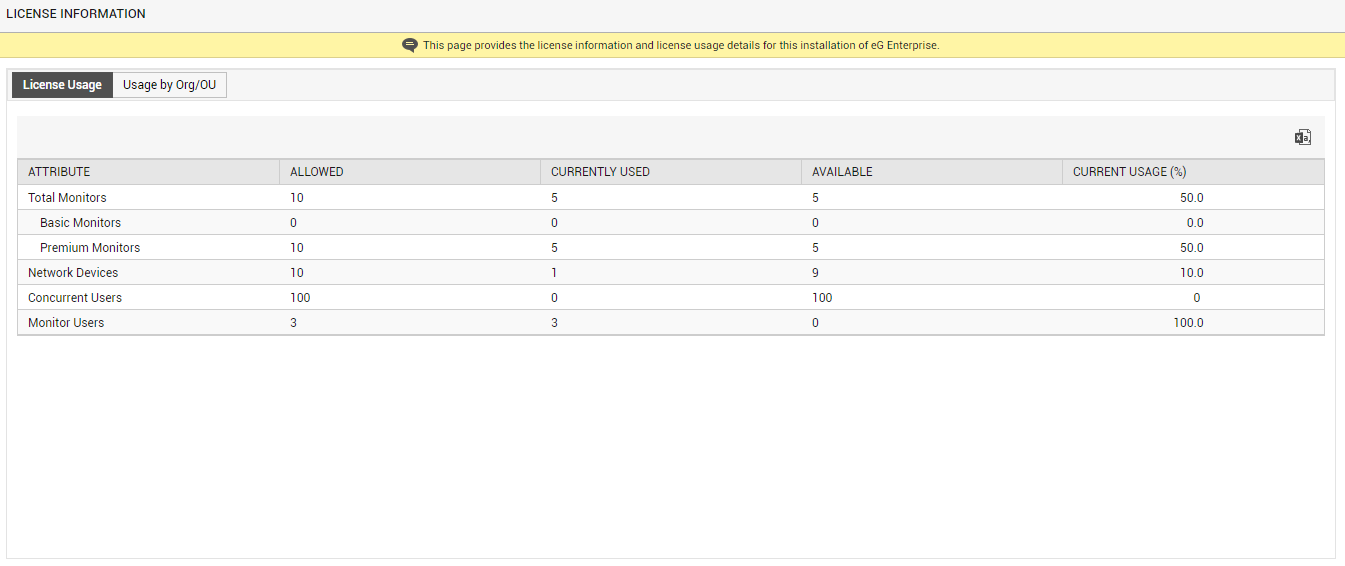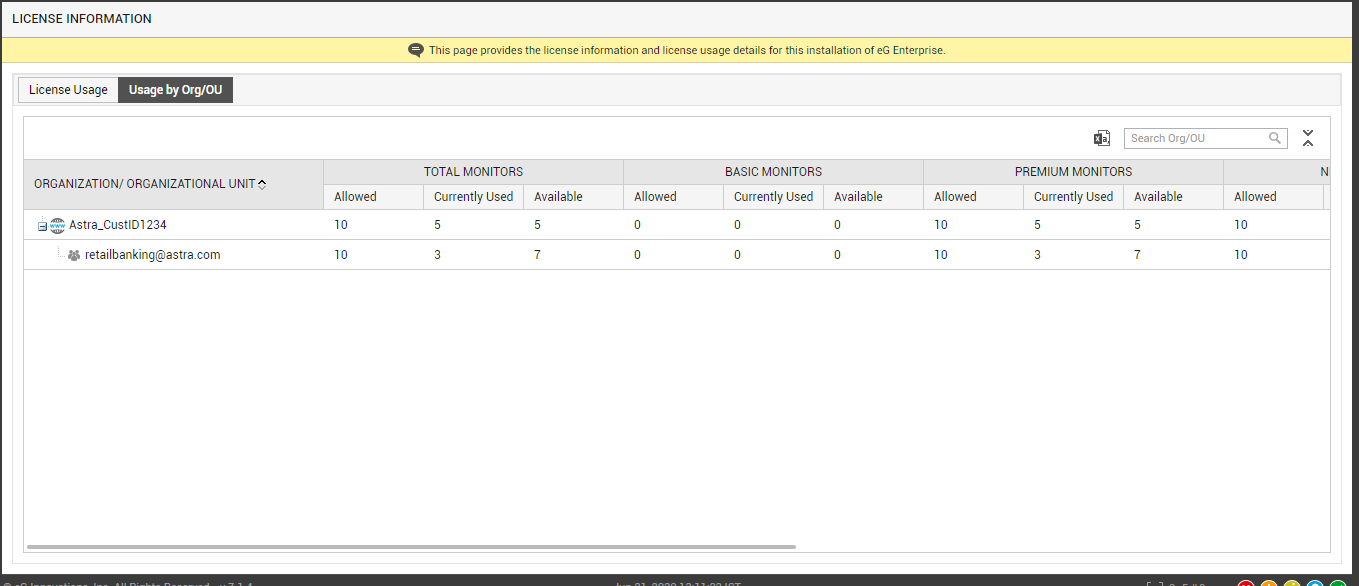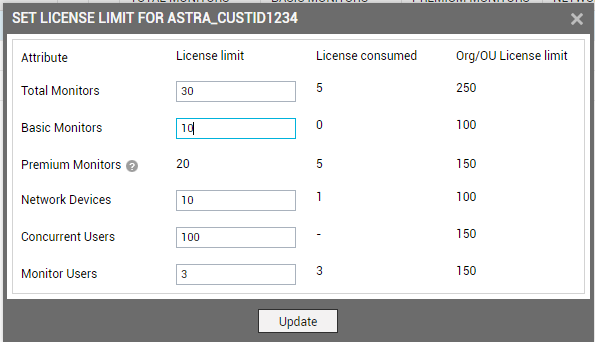Tracking License Usage
The eG Enterprise system automatically assigns a license to every tenant Organization and Organizational Unit registered with the eG manager. The details of this default license are as follows:
|
Licensed Item |
License Count |
Remarks |
|---|---|---|
|
Total Monitors |
10 |
Consumed every time a system/application is managed by the tenant Typically, this is the sum of Basic and Premium Monitors. |
|
Network Devices |
10 |
Consumed every time a network device is managed by the tenant |
|
Concurrent Users |
100 |
Is applicable only if Citrix/VDI components are monitored in a tenant environment. |
|
Monitor Users |
3 |
Consumed every time a new user is created by a tenant in the eG Enterprise system
|
|
Endpoints |
100 |
Is applicable only if IGEL Endpoints components are monitored in a tenant environment. |
|
O365 Users |
100 |
Is applicable only if Microsoft Office 365 components are monitored in a tenant environment. |
At any given point in time, a tenant with access to the eG admin interface can view their license allocation and track their license usage. For this, the tenant should do the following:
- Login to the eG admin interface.
- Follow the Miscellaneous -> License Overview menu sequence.
-
A License Usage tab page will appear (see Figure 1).

- The total number of licenses allotted to the tenant, the count of licenses currently utilized, and the license count still available for use can be ascertained from this tab page. The percentage license usage is also reported. Using this information, the tenant can quickly figure out if they are running out of licenses.
-
If the tenant is an Organization under which one/more Organizational Units have been configured, then such a tenant can also track license usage at the Organizational Unit level. For that, the tenant should click on the Usage by Org/OU tab page in Figure 1. Figure 2 will then appear.

- Using Figure 2, you can, at a single glance, understand license consumption at the Organization and Organizational Unit levels and effectively plan your license requirements for the future.
If Figure 1 or Figure 2 reveals that the tenant is running out of a specific type of license, then the tenant should request for additional licenses, so they can continue using the eG Enterprise monitoring solution uninterrupted. Upon the purchase of new licenses by the tenant, the administrator must override the default license allocation to that tenant to this effect. To achieve this, the administrator should do the following:
-
Login to the eG admin interface.
-
Follow the User Management -> Licensing menu sequence.
-
Figure 3 will then appear displaying the license allocation of all Organizations and Organizational Units registered with the eG manager.

Figure 3 : The license allocations of Organizations and Organizational Units registered with the eG manager
-
Note that the allocations to the Default Organization cannot be changed. However, you can change the allocations of any other Organization / OU. For instance, let us try to change the Total Monitors count to 30 and Basic Monitors to 10 for an Organization. For that, click the Edit
 icon corresponding to that Organization in Figure 3.
icon corresponding to that Organization in Figure 3. -
Figure 4 will then appear.

Figure 4 : Editing the license allocation of an Organization
- In Figure 4, to allocate 30 monitors to the Organization, change the value in the Total Monitors text box to 30. This will automatically change the Premium Monitors count also to 30. Note that you cannot manually change the count of Premium Monitors. Since the Total Monitors value is the sum of Basic and Premium Monitors, the difference between Total Monitors and Basic Monitors will be auto-computed and displayed as Premium Monitors.
- Next, change the value in the Basic Monitors text box to 10. As mentioned earlier, this will automatically change the count of Premium Monitors to 20.
- Finally, click the Update button to save the changes.
Note:
Ensure that the count of licenses allotted to an Organization / OU does not exceed the limits prescribed by the Default Organization.